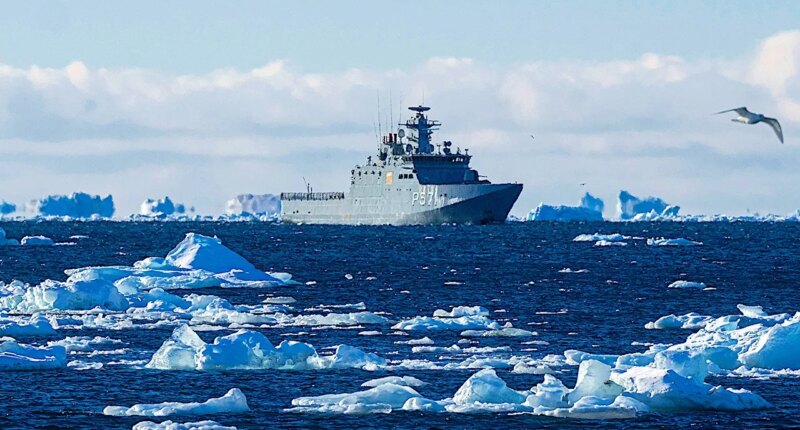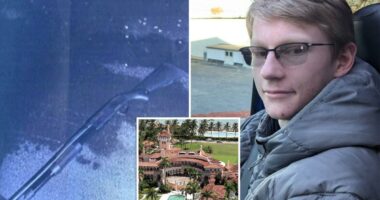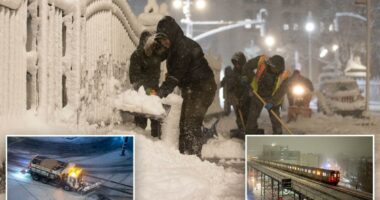Share this @internewscast.com
OTTAWA: Canada is poised to establish a consulate in Nuuk, the capital city of Greenland, marking a significant diplomatic expansion into the Arctic region. Greenland, the world’s largest island, is an autonomous territory within the Kingdom of Denmark. This development also comes in the wake of past interest expressed by former U.S. President Donald Trump, who had discussed the possibility of the U.S. acquiring Greenland, along with Canada, as the 51st state.
Canadian Foreign Affairs Minister Anita Anand shared with CBC News that the decision to open a consulate in Greenland is a groundbreaking step in bolstering Canada’s presence in the Arctic. She emphasized Canada’s role as a key player in the Arctic, particularly in the context of an increasingly unpredictable geopolitical climate.
Following a G7 foreign ministers’ meeting in Niagara-on-the-Lake, Ontario, which included U.S. Secretary of State Marco Rubio, Anand was unavailable for direct comment. However, her press secretary, Myah Tomasi, conveyed to Fox News Digital that the new consulate, which Canada will share with Iceland, will primarily focus on Arctic security. This topic has been a significant point of discussion between Anand and Rubio, highlighting the collaborative efforts between Canada and the U.S. in the region.
Anand’s initial visit to Greenland for the consulate’s opening was postponed due to adverse weather conditions, but she plans to make the trip in the near future.
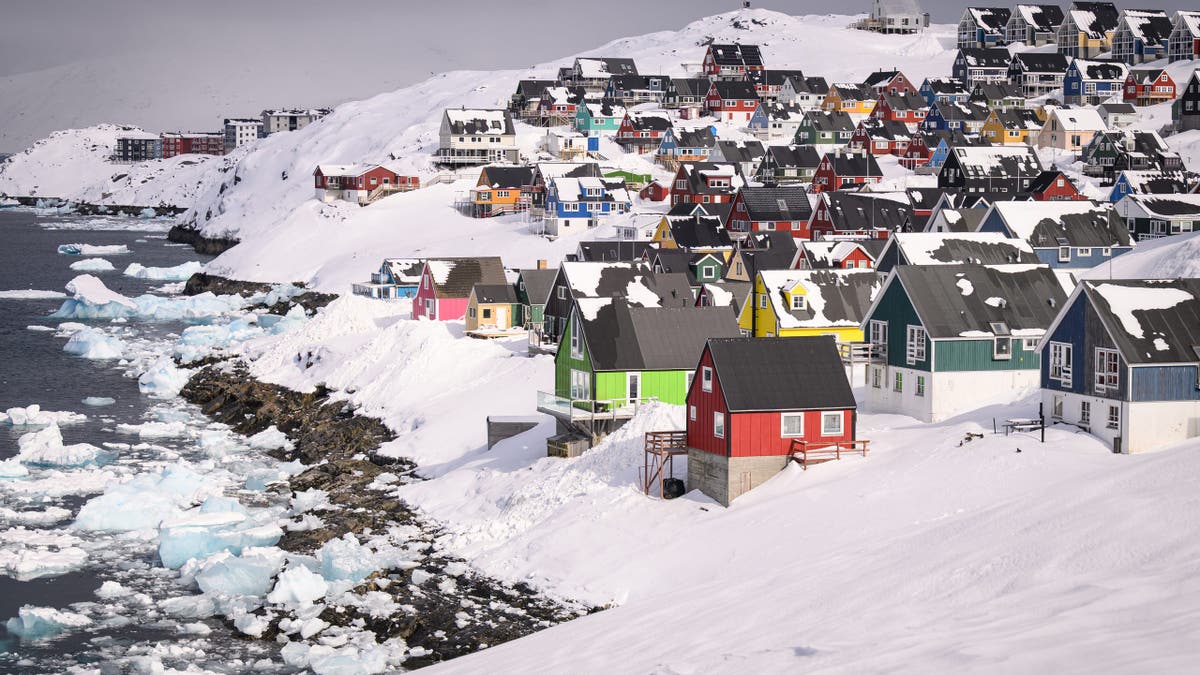
Traditional Greenlandic homes can be seen from the Myggedalen viewpoint in Nuuk, Greenland, as captured on March 28, 2025. (Leon Neal)
In a related diplomatic note, French President Emmanuel Macron made a stop in Greenland on his way to the G7 summit in Canada this June. While there, he firmly asserted that Greenland is not for sale or acquisition, subtly referencing Trump’s previous intentions. Macron’s remarks were directed at Greenlanders, emphasizing that such strategic interests are viewed by Europeans as challenges to European territories.
Last December, the Canadian government – under then-Prime Minister Justin Trudeau – unveiled an Arctic foreign policy, which included plans to open consulates in both Nuuk and Anchorage. No date has been set for the Canadian diplomatic mission in Alaska’s largest city.
Alex Dalziel, a senior fellow with the Macdonald-Laurier Institute, an Ottawa-based think tank where he focuses, in part, on Arctic security issues, told Fox News Digital that Canada’s decision to open the consulate in Greenland should not be construed as “a poke in the eye” of the U.S. after Trump suspended trade talks with Canada last month following an Ontario anti-tariff ad featuring former President Ronald Reagan.

U.S. Vice President JD Vance poses with second lady Usha Vance, former National Security Advisor Mike Waltz and his wife and Secretary of Energy Chris Wright as they tour the U.S. military’s Pituffik Space Base in Greenland on March 28, 2025. (Jim Watson/Pool via Reuters)
“This is Canada taking the North American Arctic more seriously and getting some of the political and diplomatic pieces in place,” said Dalziel.
“Anything Canada does in the Arctic to strengthen its security has the knock-on effect of strengthening U.S. security.”
Last month, Trump announced that four companies – one each in the U.S. and Canada, and two in Finland – were selected to design and build six Arctic icebreakers.
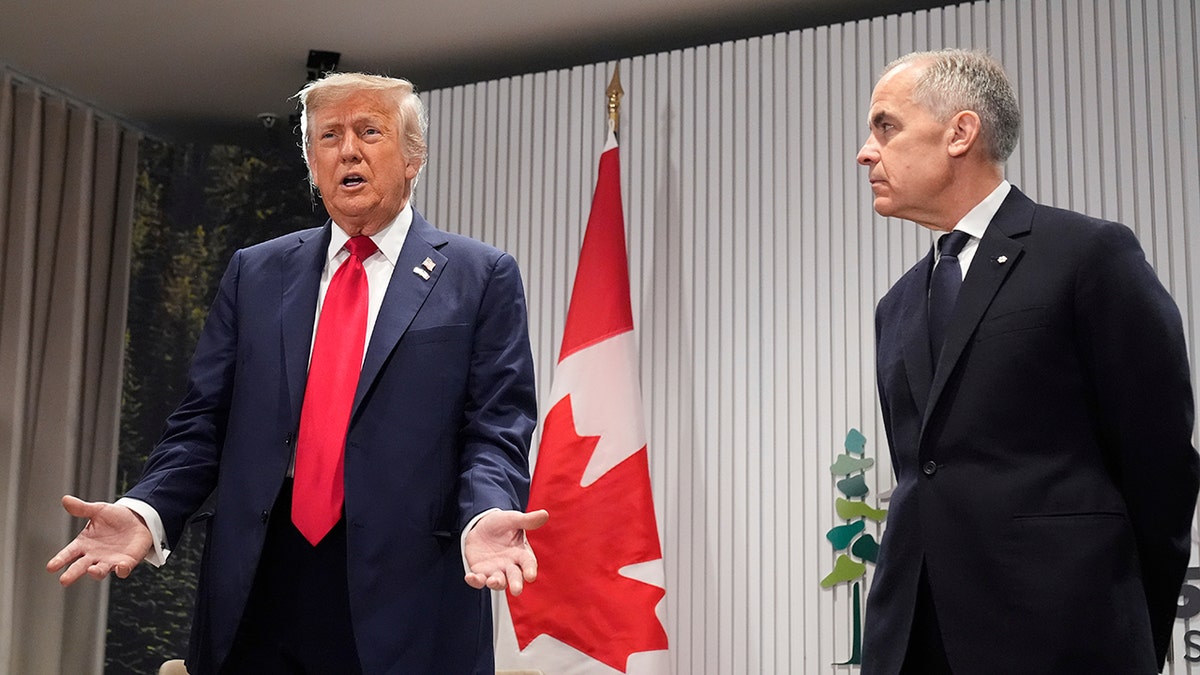
President Donald Trump speaks during a meeting with Canada’s Prime Minister Mark Carney on the sidelines of the G7 Summit, Monday, June 16, 2025, in Kananaskis, Canada. (AP Photo/Mark Schiefelbein)
The U.S. has had a consulate in Nuuk since 2020, after the first one, which opened in 1940 following the Nazi occupation of Denmark, closed in 1953.
But in advancing its economic interests in Greenland, Canada will have an advantage over the U.S. “given the connections between the peoples of Greenland and Canada,” according to Dalziel.

Military vessel HDMS Ejnar Mikkelsen of the Royal Danish Navy patrols near Nuuk, Greenland, Wednesday, March 5, 2025. (Evgeniy Maloletka/AP Photo)
The Inuit comprise most residents of both Greenland and Nunavut, Canada’s largest and northernmost territory, which shares a border of less than a mile with Greenland on the uninhabited Hans Island – also known as Tartupaluk in Greenlandic.
Canada’s Arctic foreign policy commits to implement a boundary agreement between Canada and Denmark regarding the island – and to also begin boundary negotiations with the U.S. regarding the Beaufort Sea, which is north of Alaska and two of Canada’s northern territories.
“There have been overlapping claims between Canada and the U.S.,” explained Dalziel about a decades-long dispute over a section of the sea.
“There was some progress in the Biden administration to advance discussions, but in the current context I think it’s unlikely to make progress,” said Dalziel.
“Canada and the U.S. have lived with this, as they have with their disagreement over the status of the Northwest Passage – whether it’s an internal historic waterway as Canada claims, or an international strait as the U.S. does.”
